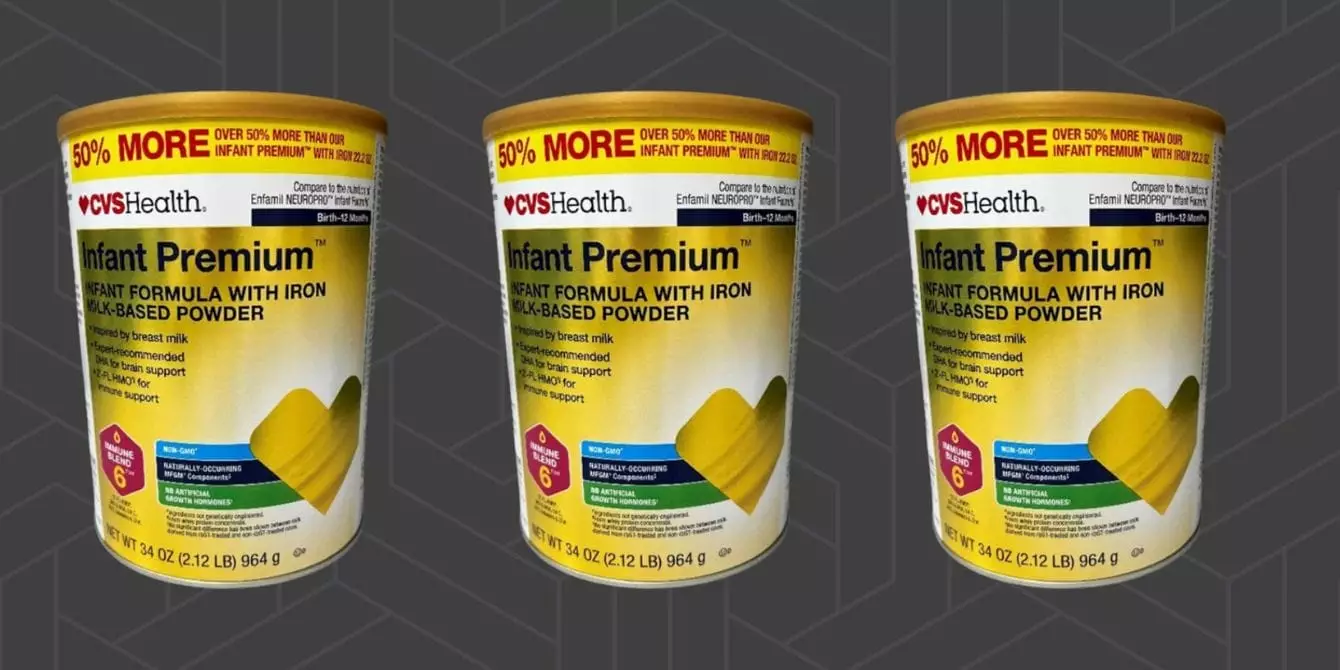In light of recent events, it’s imperative for parents to be vigilant about the formula they provide for their infants. Perrigo Company has announced a voluntary recall affecting approximately 16,500 cans of its store-brand infant formula. This recall stems from routine quality testing which revealed that specific batches of the Premium Infant Formula with Iron Milk-Based Powder exceeded the acceptable maximum levels of vitamin D.
While the news may cause immediate concern for parents, it’s important to note that, up until now, there have been no documented adverse health incidents related to the consumption of these products. The recall appears to be a proactive measure aimed at ensuring the safety and well-being of infants who may consume the affected formula.
The recalled formula was distributed to select H-E-B grocery stores in Texas and various CVS locations across multiple states, including Florida, California, and South Carolina, among others. Parents should specifically check cans bearing certain lot codes and use-by dates, particularly those with dates extending to November 2025. The lot codes needing attention include T11LMYC, T11LMXC, and T09LMXC, with respective use-by dates falling in November 2025.
This situation illustrates the challenges many parents face in ensuring that the nutritional products they provide are safe for their children. Parents have a responsibility not just to purchase baby formula but to remain vigilant about its handling and storage as well. Regularly checking for product recalls or changes in regulations could help avoid potential health risks.
The Risks of Elevated Vitamin D
According to the Food and Drug Administration (FDA), while the short-term ingestion of the affected infant formula is unlikely to result in serious health issues for the vast majority of infants, certain vulnerable groups may still be at risk. Infants with specific medical conditions, such as impaired renal function, could experience adverse effects from higher levels of vitamin D, which can lead to toxicity.
Symptoms of vitamin D toxicity can be subtle and varied, including poor feeding habits and gastrointestinal discomfort. In more severe cases, the impact could escalate to serious conditions like seizures or kidney failure. The American Academy of Pediatrics (AAP) has noted that although vitamin D intoxication is quite rare, it can still arise in vulnerable populations. Therefore, parents should remain alert to any changes in their infants’ health after consuming the recalled product.
If you suspect that you may have purchased the affected Perrigo infant formula, the best course of action is to check your cans for the specified lot codes and use-by dates. Since this recall is limited to specific lots, many products on the market remain unaffected. However, parents should err on the side of caution and ensure they are providing safe and suitable nutrition for their little ones.
If you find any of the recalled products in your home, it is advised that you refrain from using them. Instead, reach out to Perrigo’s Consumer Affairs at 1-800-538-9543 for guidance and potential returns. Moreover, it’s crucial to keep your pediatrician informed of any health concerns or symptoms that may arise following the consumption of these formulas, ensuring the best possible care for your child.
The recent recall of Perrigo’s infant formula serves as a powerful reminder of the complexities involved in infant nutrition. While the situation currently appears to be under control, the possibility of elevated vitamin D levels in specific batches raises important questions about product safety and regulatory diligence. Parents are encouraged to take an active role in monitoring their infant’s diet, staying informed about product recalls, and consulting health professionals whenever necessary to safeguard their child’s health. By doing so, they can protect their little ones from potential risks while ensuring that their nutritional needs are met without compromising safety.

